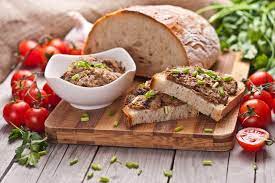Corked is a term that every wine lover has heard at least once. Most people don’t associate “corked” with anything positive, as it is a negative descriptor. However, most people don’t know much about wine that has been corked. The confusion reigns supreme regarding the “why” or “how”.
Corked wine will not make you sick, but it can taste not very good. This primer will help you understand what happens to wine when it becomes corked.
What is Corked Wine?
A wine labelled “corked” means it has been contaminated with cork taint. Cork is a natural substance and is vulnerable to microorganisms eating it. TCA is a chemical compound that airborne fungi can create.
TCA can cause the wine to become “off” by coming in contact with it.
What isn’t Corked wine?
There is a lot of misinformation about corked wine. It is often believed that only visual inspection can tell if a wine has corked. This is not true. Although bits and pieces of cork may signify that a glass of wine is spoiled, they are not indicative. White crystals on the cork are an indication that there is a high level of harmless tartrates. These naturally occur in many wine types. The cork’s Smell will not tell you anything new since it is not a way of determining if a wine is spoiled.
Do you have a screwcap or synthetic cork on your wine? Any notion that your bottle is corked is purely a rumour. TCA development is dependent on the presence of natural cork.
Taste and Smell are key deciding factors.
A wine bottle will not list whether it is corked on its label. Visual inspections don’t provide any information about spoilage. What is the best way to tell if you are dealing with corked wine? It comes down to the sense of taste and Smell. It’s easier to identify if a wine is spoiled if you have a good understanding of the grape characteristics. However, even beginners can spot corked wines compared to uncorked wines.
The wine’s aroma is the first thing to look for. Corked wine can emit a smell similar to wet newspaper left out on the porch in a rainstorm. People often use the term “wet dog” to describe corked wines that are particularly funky. It is also a good descriptor, as “rotten cardboard” is not what most people look for in a wine bottle.
When it is time to taste the wine, things can get worse. Corked wine is usually dull and lifeless with little character. You’ll notice a marked difference in fruitiness between a corked wine and a Merlot. Corked wine can sometimes be quite astringent, making it difficult to drink.
What to do if your wine is corked
You will feel disappointed if you have a corked bottle of wine. Several folk remedies can be used to remove TCA from corked wine, such as wrapping the wine in plastic wrap for 15 mins and decanting it to a new container. However, returning the wine to the place you purchased it is the best option. If you decide to drink the wine, any respectable wine shop will reimburse you for corked wine.
What happens if you find a corked wine bottle at a restaurant? The server or sommelier will usually pour a small amount of wine to you to try before pouring the glasses. This is your chance to decide if the wine is worthy of drinking. Before you buy the wine, make sure to let the server know if anything is not right.
Avoiding Corked Wine
One bottle of corked wine is all it takes to make someone more cautious the next time they go to buy another. However, many people don’t encounter corked wine as often as they think. Screwcap enclosures and synthetic corks are being used by more wineries today to prevent wine from becoming corked. Even so, only 5% of the natural corks on the market have been affected by TCA contamination. Although you may find a corked bottle in 20 of your bottles, this is unlikely to be a common occurrence. It’s rare to find a corked wine in a lifetime of buying wines.
Don’t let wine ruin your evening. Knowing what to look out for and how to avoid it will take the risk of having a bad experience, a thing of the past.



